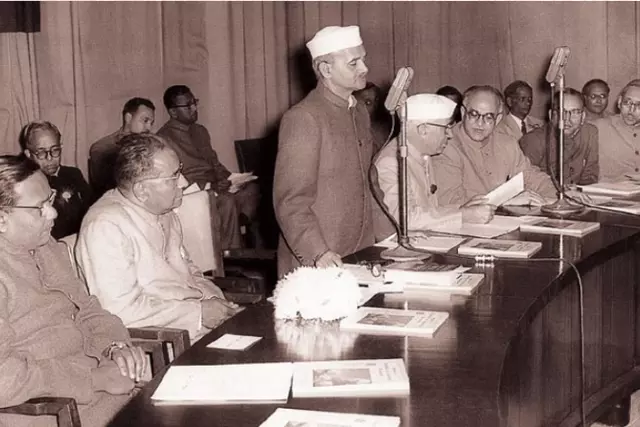"Dream, Dream, Dream! Conduct these dreams into thoughts, and then transform them into action."
- Dr. A. P. J. Abdul Kalam
"Dream, Dream, Dream! Conduct these dreams into thoughts, and then transform them into action."
- Dr. A. P. J. Abdul Kalam
1 Oct 2024
Lal Bahadur Shastri was an Indian leader and the country's prime minister from 1964 to 1966, succeeding Jawaharlal Nehru. He was born in Mughalsarai, India, on October 2, 1904, and passed away in Tashkent, Uzbekistan, on January 11, 1966.
He was briefly imprisoned in 1921 while he was a part of Mahatma Gandhi's noncooperation movement against the British government in India. After being freed, he attended the nationalist Kashi Vidyapitha University, where he gained the title of shastri, or "learned in the scriptures." After that, he went back to politics as a supporter of Gandhi, served multiple more jail terms, and rose to prominence within the Congress Party of the United Provinces, which is now the state of Uttar Pradesh.

(Source: Google Images)
Shastri's life served as a perfect example of how important it is to lead by example. When food was scarce, he promoted restraint and favored a modest house over an ostentatious one. His integrity was demonstrated when, while serving as a top government official, he paid a fine for a forgotten train ticket.

(Source: Google Images)
Shastri was committed to serving his country throughout his life. His steadfast dedication to the advancement of common Indians served as an inspiration to leaders, both during his early participation in the struggle for independence and during his tenure as head of the Indian National Congress. During the Indo-Pak war of 1965, he ran the "Jai Jawan, Jai Kisan" campaign, stressing the value of both farmers and warriors.

(Source: Google Images)
Shastri understood the value of harmony in the different terrains of India. He was appreciative of the nation's diverse array of cultures, languages, and religions. A more unified India was made possible by his initiatives to promote Hindi as the official language and to overcome linguistic and geographic divides.
(Source: Google Images)
In the face of financial hardships and personal losses, Shastri showed incredible fortitude. His ability to remain composed and determined helped him during the Food Scarcity Crisis and the Indo-Pak War. Shastri promoted education as a means of achieving empowerment and advancement. He pursued higher studies and graduated from Kashi Vidyapeeth despite financial limitations. His enduring dedication to education and intellectual development served as an inspiration to many, particularly the younger generation.

(Source: Google Images)
Even as the head of the country's political establishment, Shastri maintained his modesty and affability. He adopted a simple lifestyle and traveled with little security. He was well-liked by everyone and had a lasting effect on everyone he came into contact with because of his humility.
"There comes a time in the life of every nation when it stands at the crossroads of history and must choose which way to go.'' ~ Lal Bahadur Shastri